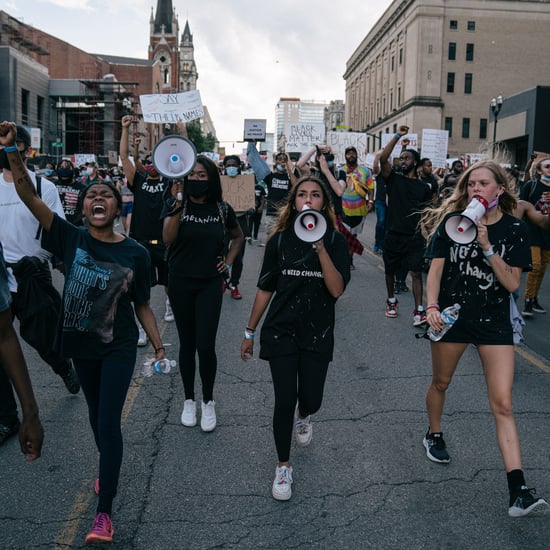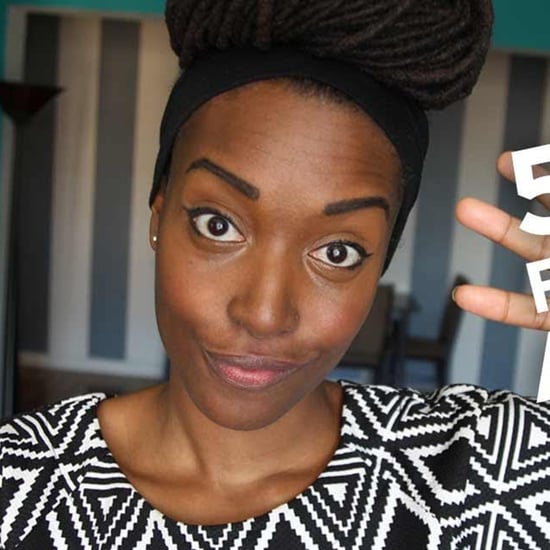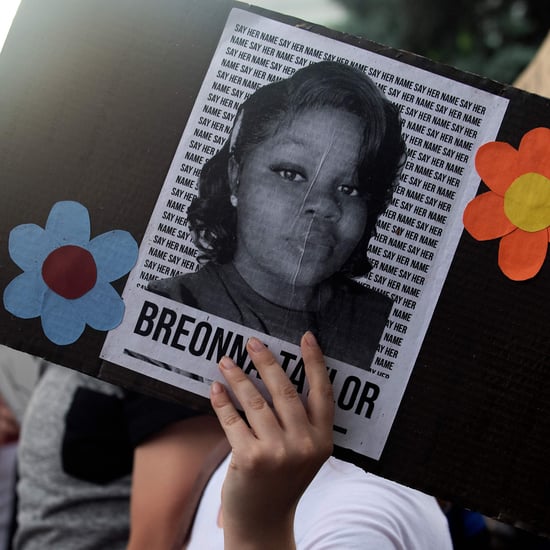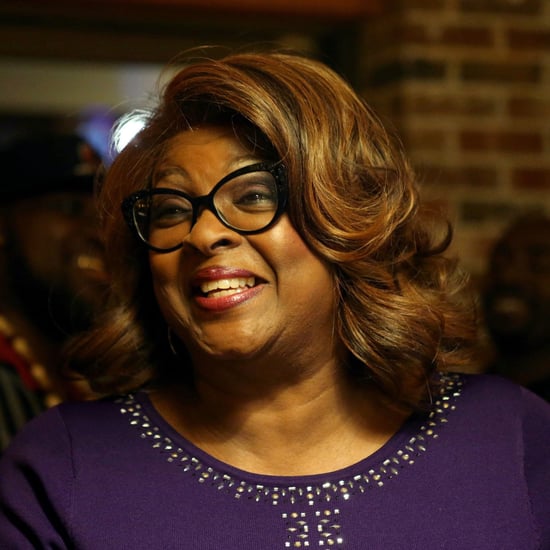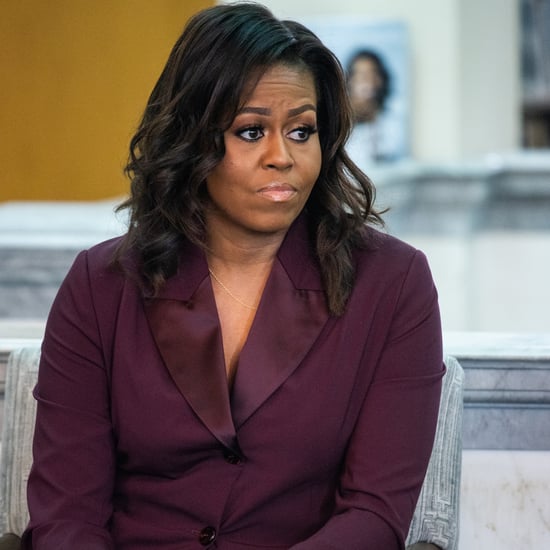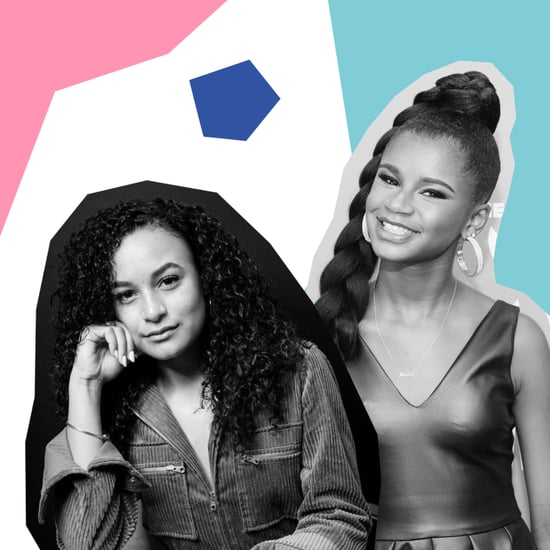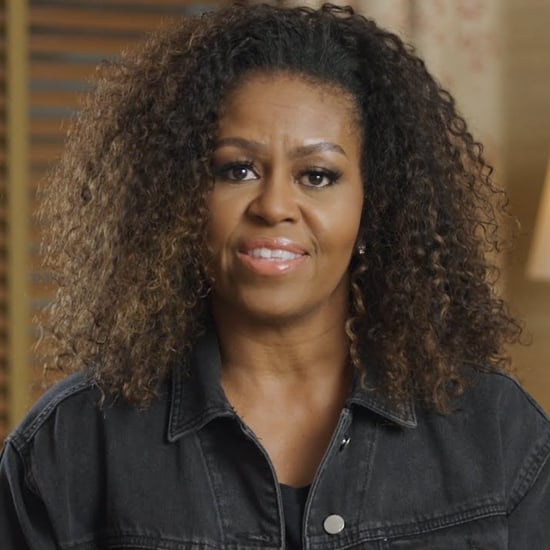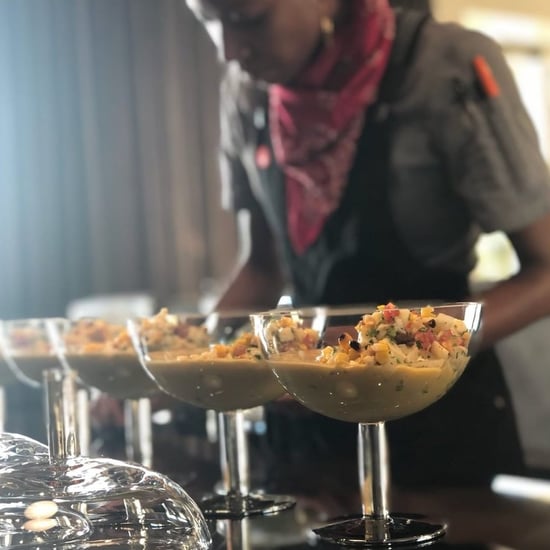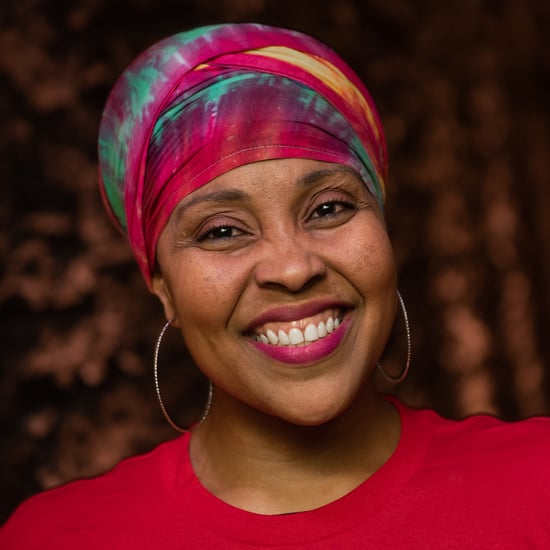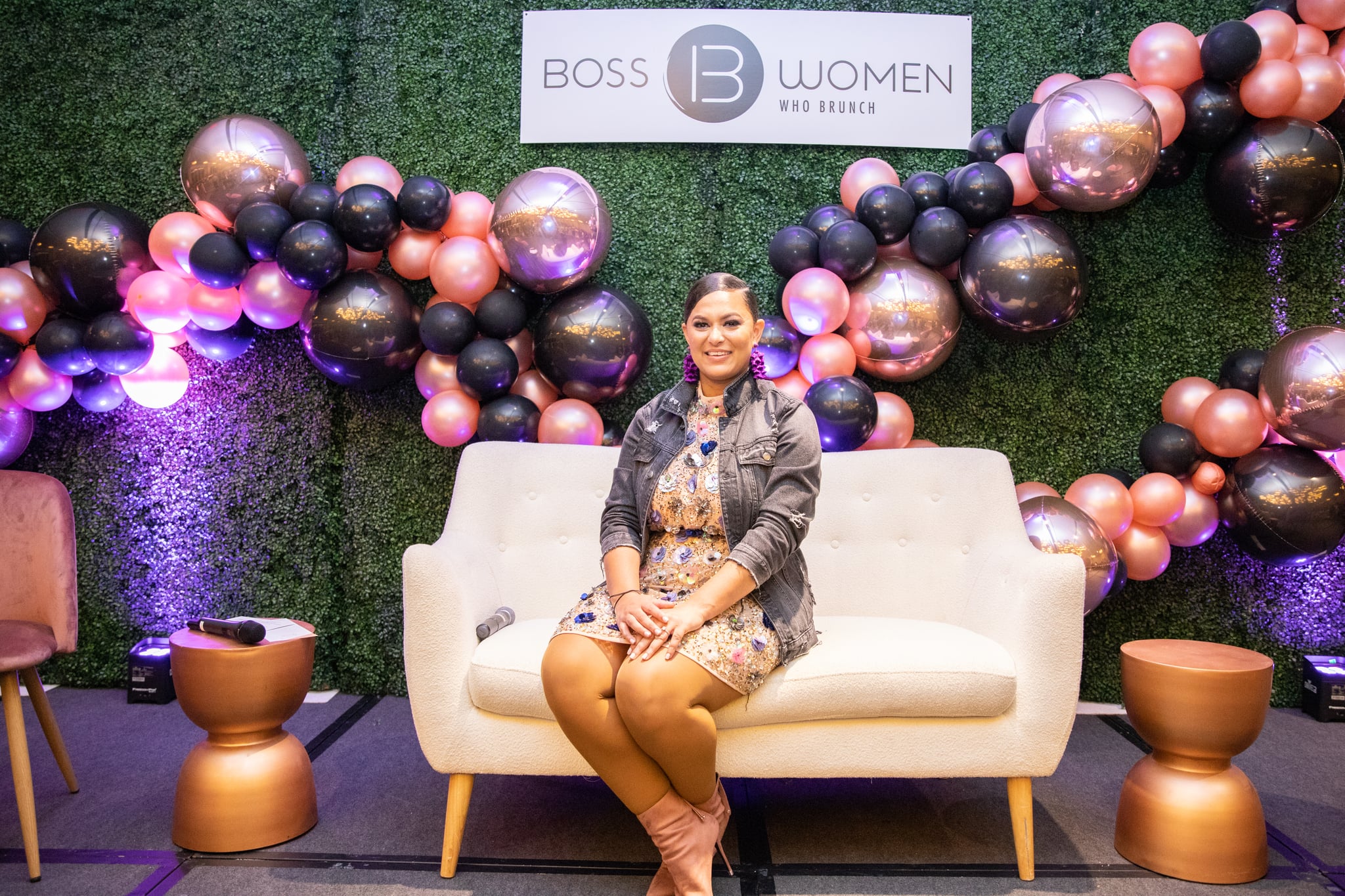
Who Is Marty McDonald From Boss Women Media?
Media CEO Marty McDonald Wants Black Women to Walk in Authority — and She's Leading by Example
In January 2018, Boss Women Media founder Marty McDonald decided to put everything on the line. At the time, she was a marketing manager for a corporation, making a six-figure salary and high up on the company's totem pole of brand strategy. The problem? She was one of the very few women of color working there, and it began taking a toll. "I was sitting in an environment, in this space where I truly felt like an impostor," Marty told POPSUGAR over the phone. "I felt very voiceless, and I felt like I had to be animated and assimilate to everyone else's beliefs of what success looked like." And so — without a clear plan, path, or paycheck — she quit.
But Marty didn't leave her job only because she felt powerless: she also felt unfulfilled and yearned for more. That's when she decided to start Boss Women Media — a brand dedicated to connecting career-driven women through workshops and networking events. She kickstarted BWM with a meeting at the Neiman Marcus Cafe in Dallas, and around 25 women showed up. Cut to now, and Marty — who is in charge of developing relationships with sponsors and partners, strategizing BWM's revenue growth, managing all of the social media channels, and creative directing events and online content — is in the middle of her first-ever Black Girl Magic tour, through which she's unifying black women who want to take their careers to the next level. This mission is especially important to Marty because she understands what it's like being a woman who desires so much more out of her career but not exactly knowing how to reach fulfillment.
Tour attendees will learn about a series of topics such as the importance of representation, knowing your worth (and what your salary should be), and building a strong brand. There will also be a panel of guests including author Sopha Rush; Revlon's senior director of marketing, Teneya Gholston; and former Beyoncé backup dancer Denee Baptiste. The event — which is nearly sold out in multiple locations — has already taken place in Los Angeles and will continue in Dallas, Houston, Atlanta, and New York between Feb. 23 and March 16.
Marty recently spoke with POPSUGAR about her journey from corporate America to starting her own company. It wasn't easy, it wasn't smooth-sailing, and it wasn't without any setbacks, but it's been a course that's enabled her to step fully into the power she's always felt within her. And she's ready to help other women of color do the same thing.
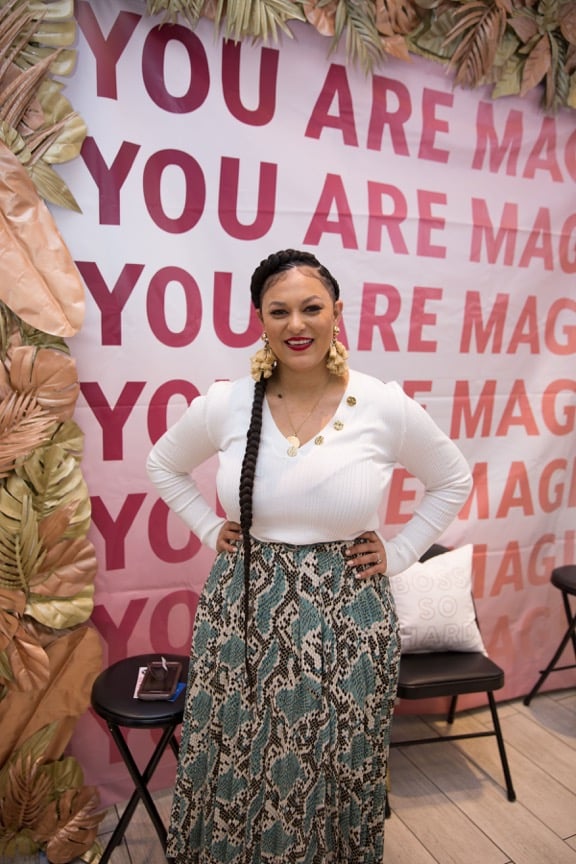
Marty McDonald: The most exciting part of it was it felt like freedom. I am free to make my own decisions, free to walk in the authority of my gifts. But with freedom, there's a cost. And that cost was no paycheck. That was my apprehension. I was like, "How am I going to make money?" Entrepreneurship is this ongoing uphill battle. There are moments when you feel free and super excited, then there are moments when you're on the phone with somebody and saying, "Did I make a mistake? Did I do the right thing?"
MM: I had to go face-to-face with me. I was my first obstacle because my mind, on some days, would make me believe that I wasn't capable. I had to tackle that and affirm myself. I put Post-it notes all over my mirror. So when I look in my mirror, I see "You are capable. You are strong." The world will tear you down and not even care. So if the world will do that, then you've got to come correct and come strong. Once I truly believed — it sounds like such a cliché — things started happening.
PS: You built a strong background in marketing when you were working a corporate job. But what are some new things you've learned about marketing by running your own business?MM: Not taking things personally. If people don't react to something in a way that I thought that they should react to it, I can't take that personally. That's kind of hard versus when you're working in a corporation and an idea gets funneled and watered down so much to where it's not even the original idea that came into play. It's a little different when you're working on your own.
PS: What inspires you to come up with fresh, new ideas for Boss Women Media?
MM: I like to go to different types of events — not just events in women empowerment. I'm going to some Christian conferences and some real tech-y type conferences. Another way is focus groups. We had an event last year — Angela Rye [attorney and political activist] was our keynote speaker — and we polled everyone afterwards. We then take that data, dissect it, and get some more information.
PS: Why do you think it's important to host an event like the Black Girl Magic tour?
MM: It's important for us to share real information that can be utilized. I've been to a lot of events that are really pretty, but you leave the event with, "Now what am I supposed to do?," because you're on this high of Instagram photos and all this content you've gotten — and you don't necessarily know a takeaway. So I think it's really important for us to make our events as fly as possible, but we need some depth, too. And the depth needs to be able to live in the life of the attendee that's coming afterwards. Last year, there were 2.4 million black women who started businesses. But out of those 2.4 million, only 10 percent or less raised money through venture capitalists. And so there, we have a problem.
PS: How did you decide who would be speaking at the tour and what did the process of booking those panel members entail?
MM: Where they really play this key role is when we talk about establishing brands that stick. They've created a brand — whether it's a persona of themselves or a brand that they have — of making people buy into them. And so that's the approach we took when we said, "These are the types of women we want to sit on the panel." And we know a couple of people, so we can reach out. We've grown credibility to where people will respond to us.
MM: One, how to create a pitch. If you were trying to pitch an idea right now, what do you need to have? Then the other takeaway is how to get paid exactly what you're worth. We often leave so much money on the table, and we just say yes to the first thing that's coming our way. I was negotiating a contract recently, and I remember being sick over the amount [of money] on it. And I was like, "That's not my rate. This is a negotiation. I can refuse to do this." And then creating and establishing a brand that sticks would be the third takeaway — owning who we are and our identity and what we're trying to sell.
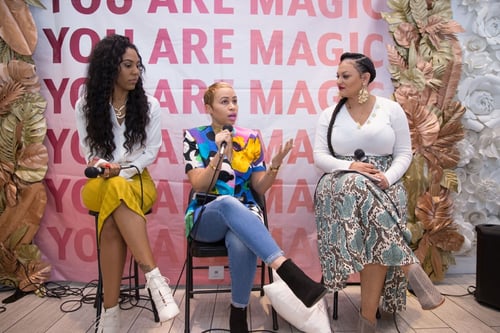
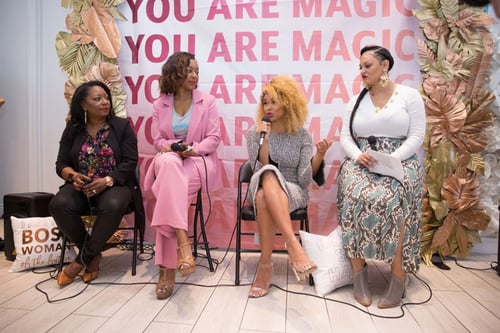
MM: You have to be consistent, and you have to be connected. Consistency trumps talent any day of the week. You could be the most talented person in a room, but if you're not consistent, nobody cares. Keep going. And you've got to make yourself available in that space of being connected. Who are you around? What environments are you putting yourself in? What are you spending the most time with? Allow yourself to be a resource and in a space of connection.
PS: What has been the most rewarding aspect of running this organization thus far for you?
MM: A time that I will never forget — I often reflect on it — is when we had an event in Dallas. It was our second annual Boss Women of the Year [event]. It was amazing. We had 450-plus women in attendance — millennial black women who just wanted to learn, engage, connect. The energy just felt right. And when I took the stage of that event that day to share my story, who I was, as we did the welcome, I will never forget what that felt like — how hard I had worked and planned for it. That's the most rewarding factor of all this is: I can create this experience for women to connect. And I never want to take that lightly at all.

